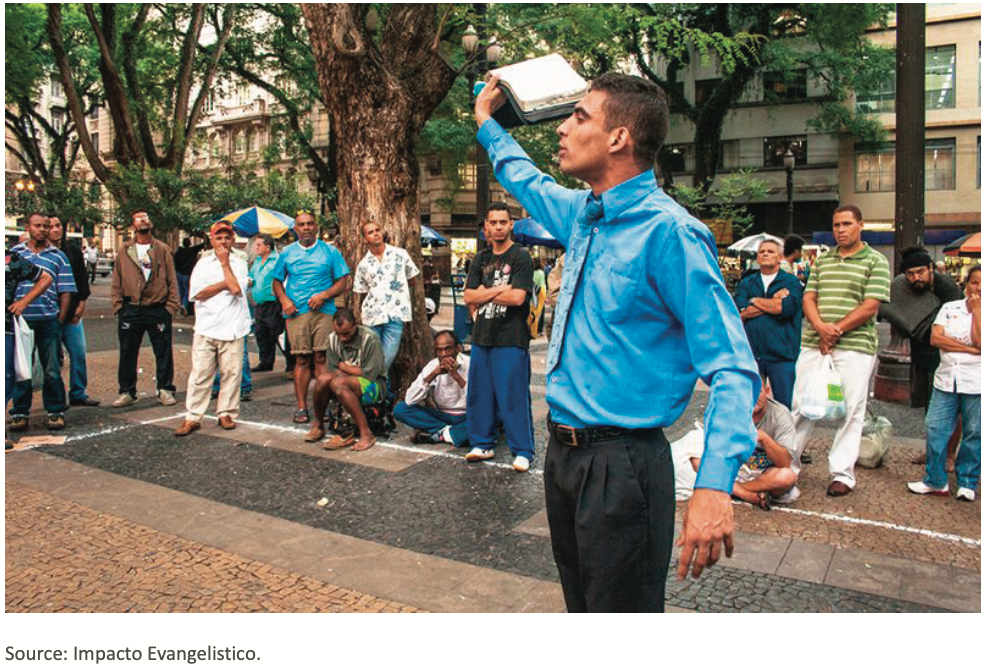
While evangelicals in El Salvador, pandered to by the country’s conservative populist president, Nayib Bukele, have been met with growing suspicion by the left, this growing group of Christians has adopted many of the liberation theological views of Catholics, writes Claire Moll Namas in Religion and Global Society (October 25), a blog of the London School of Economics. Today 35 percent of Salvadorans are evangelicals (with 45 percent being Catholic) and their social influence has grown, though not necessarily in a conservative direction. Moll Namas cites research suggesting that evangelicals “do not view the world beyond the church as a profane, catholicized social space nor as a domain that should be avoided altogether.” Her own research on the Prophetic Church in rural El Salvador showed that the church belied its strict, conservative reputation, with women holding equality with men in much of family and community life and often being regarded as important leaders. The evangelicals in her study were some of the most active participants in the local community organizing initiatives of a national NGO. “[W]hen I asked my evangelical interlocutors why they attended church, marched for access to clean water, and saved their money in a community savings and loan group, they repeated the same phrase for each activity: ‘para seguir adelante’ (to collectively move forward)…. [A]ll of their actions are done in order to achieve a good life whether though Jesus or through political and social activism.”

(Religion and Global Society, https://blogs.lse.ac.uk/religionglobalsociety/2021/10/reality- versus-stereotype-the-case-of-the-anti-progress-evangelicals-in-el-salvador/)